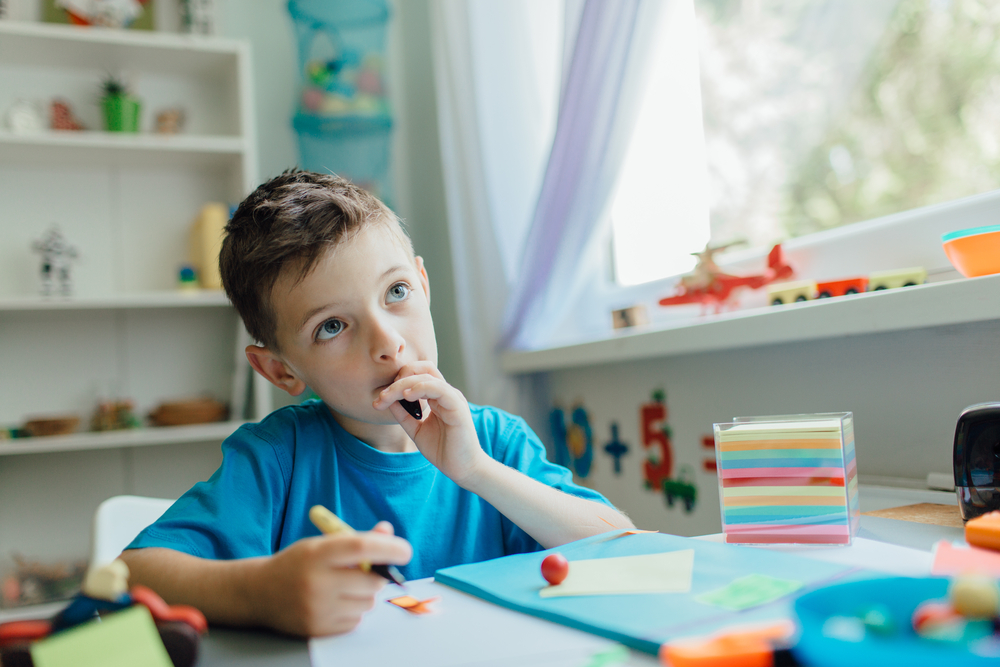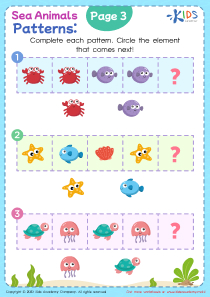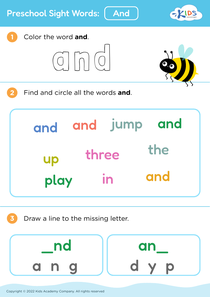Tracing Shapes worksheets activities for Preschool
15 filtered results
-
From - To
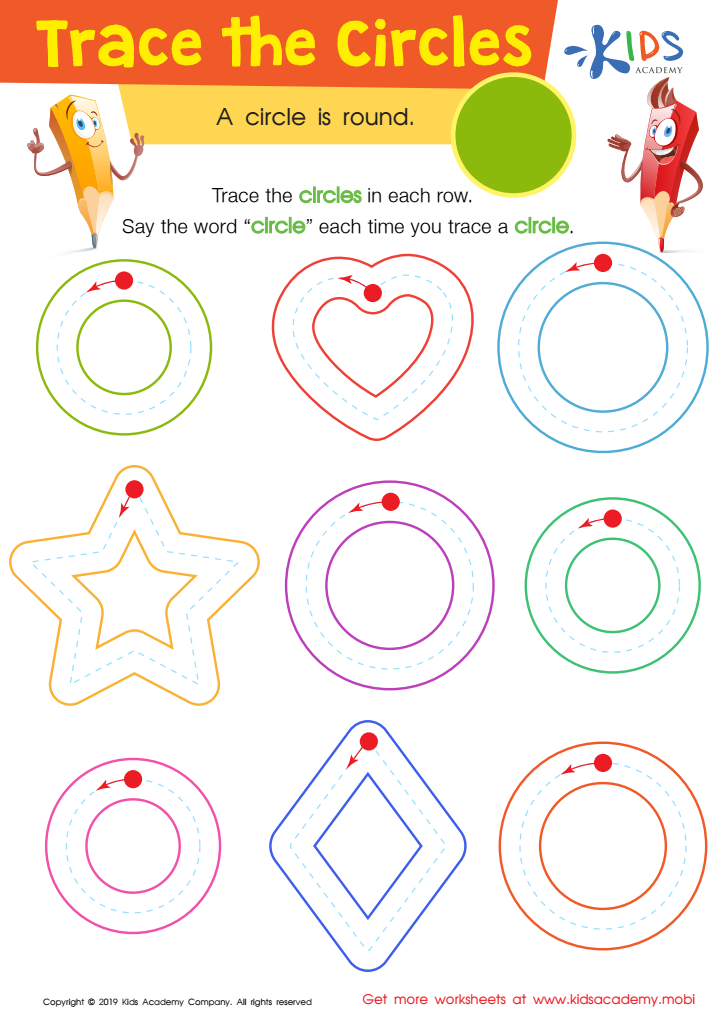

Trace The Circles Worksheet
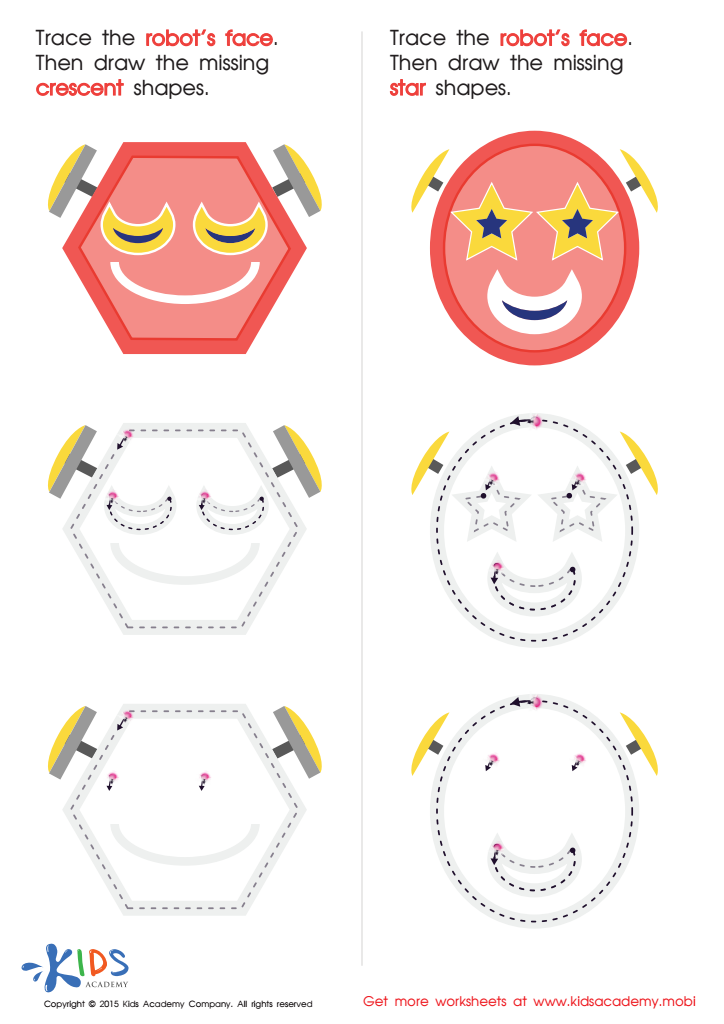

Composing a Robot's Face of Crescents And Stars Worksheet
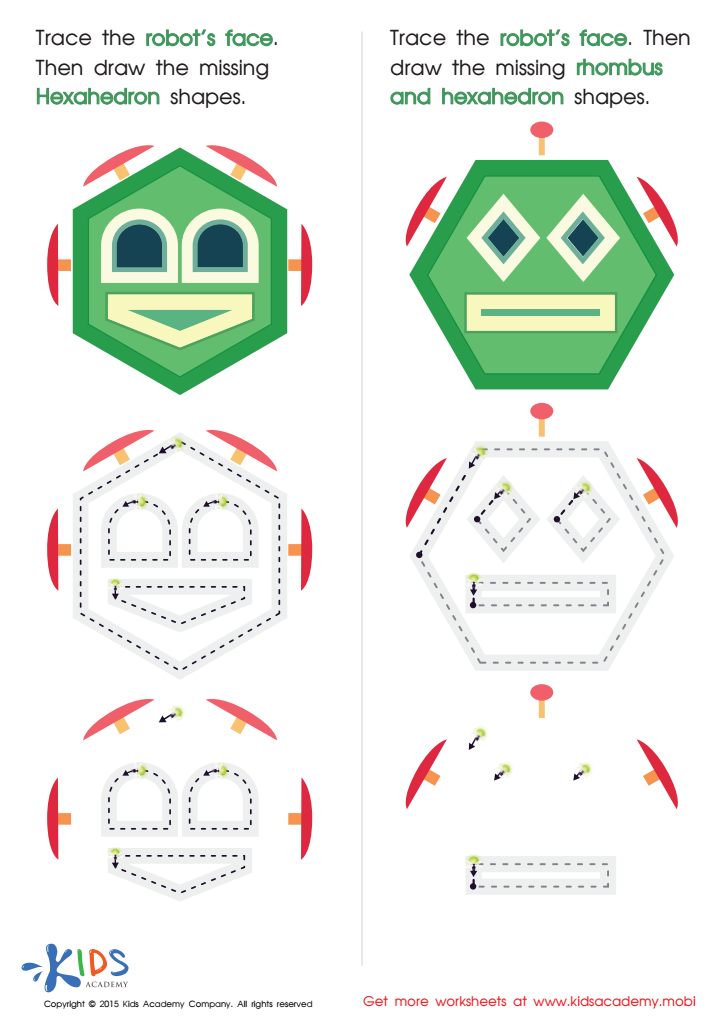

Practice Drawing Hexahedrons And a Rhombus Worksheet


Drawing a Triangle Worksheet
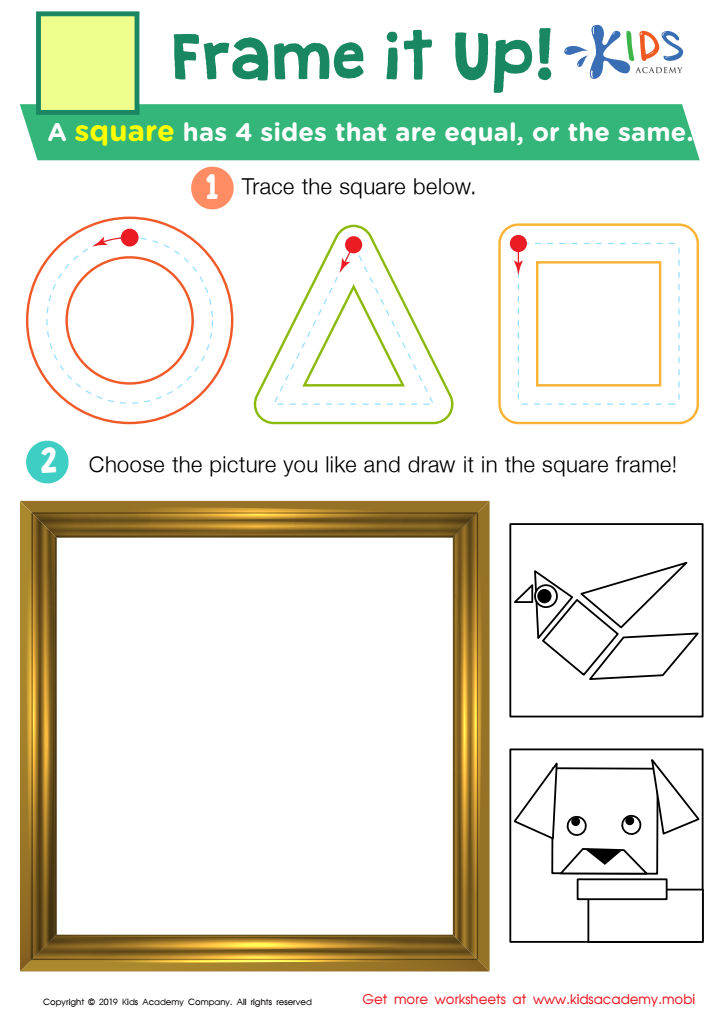

Frame it Up Worksheet
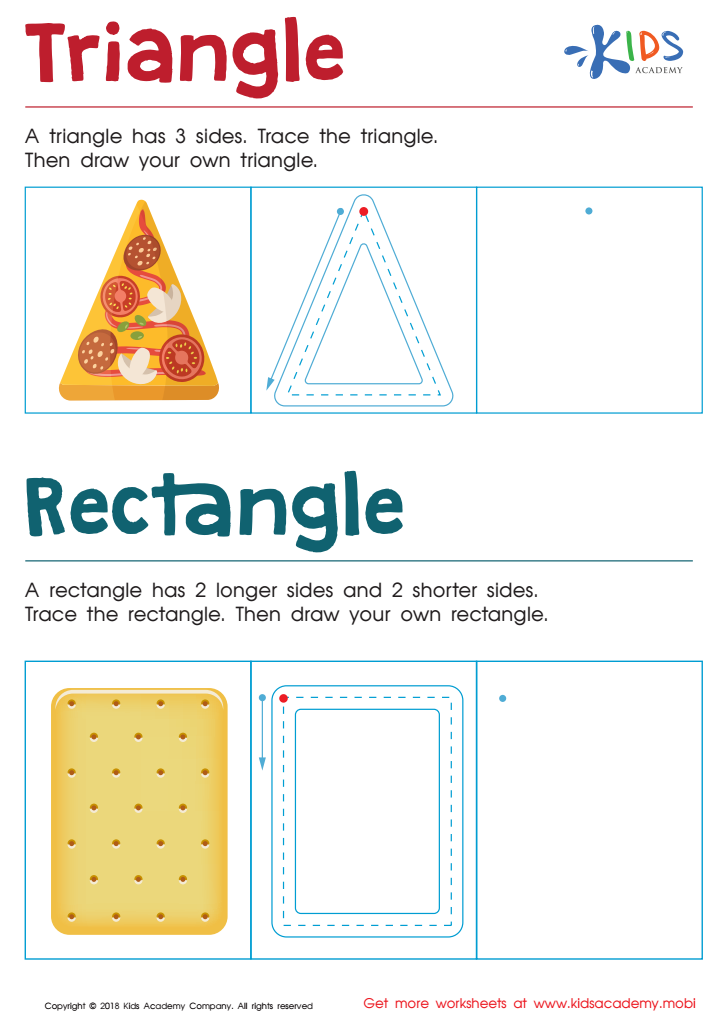

Triangle Rectangle Worksheet
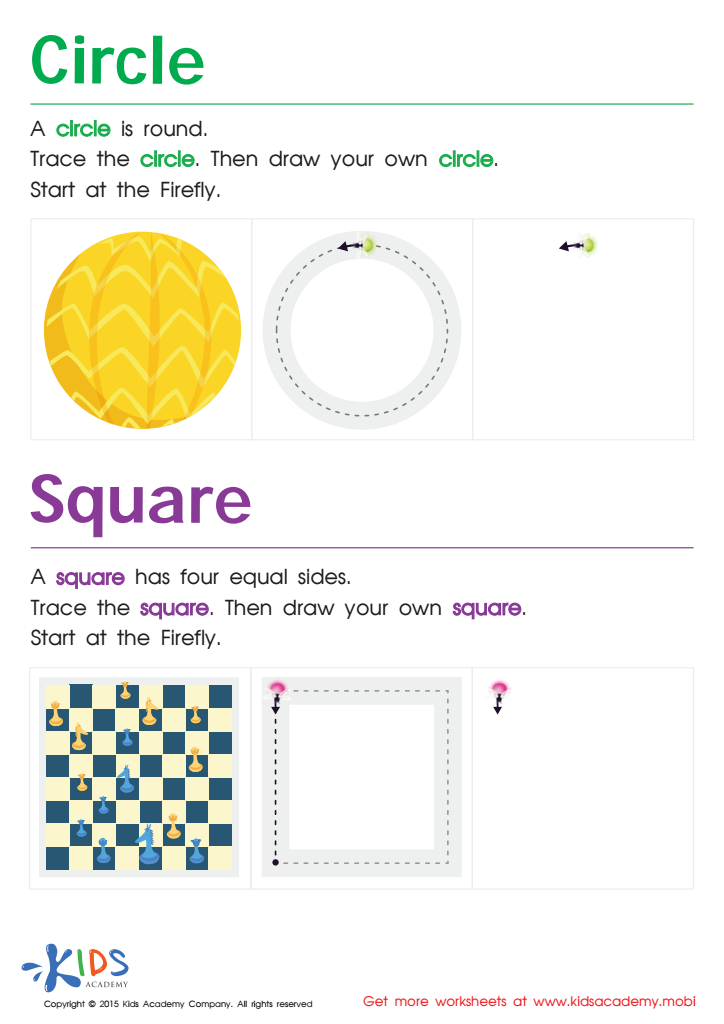

Trace And Draw a Circle And a Square Worksheet
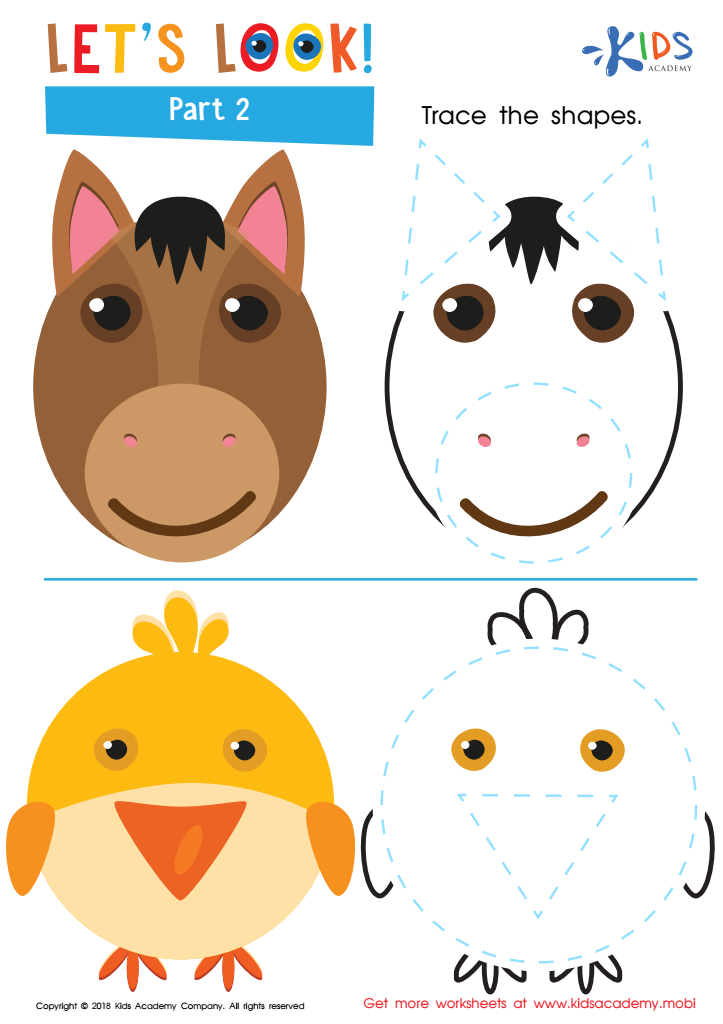

Let's Look! Part 2 Worksheet
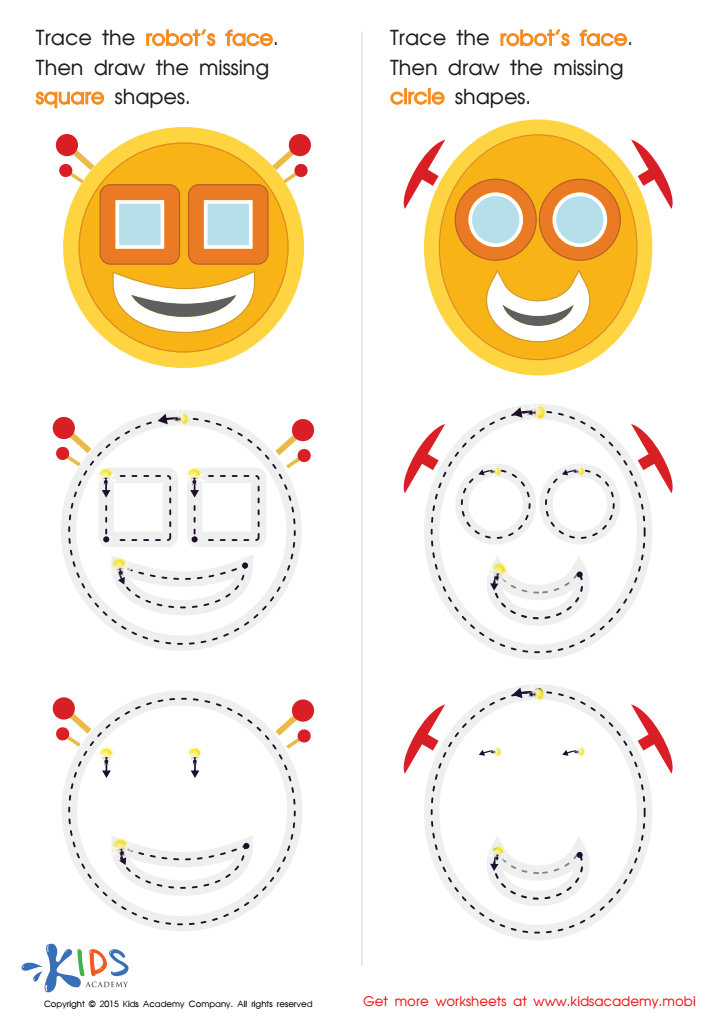

Practicing to Draw Circles And Squares Printable
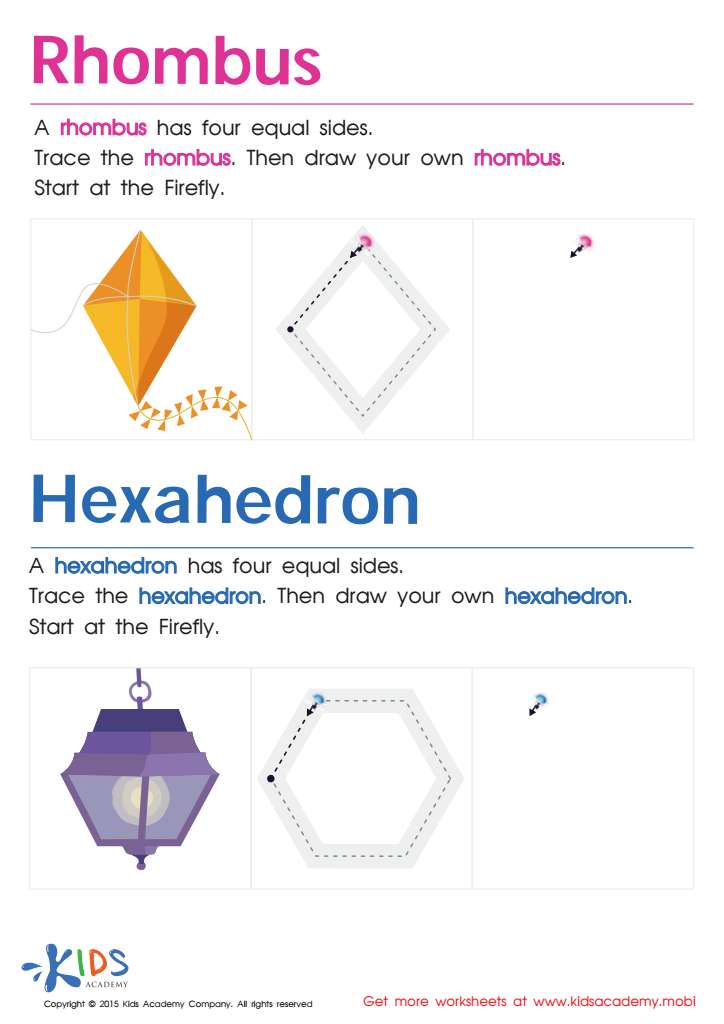

Draw a Rhombus And a Hexahedron Printable
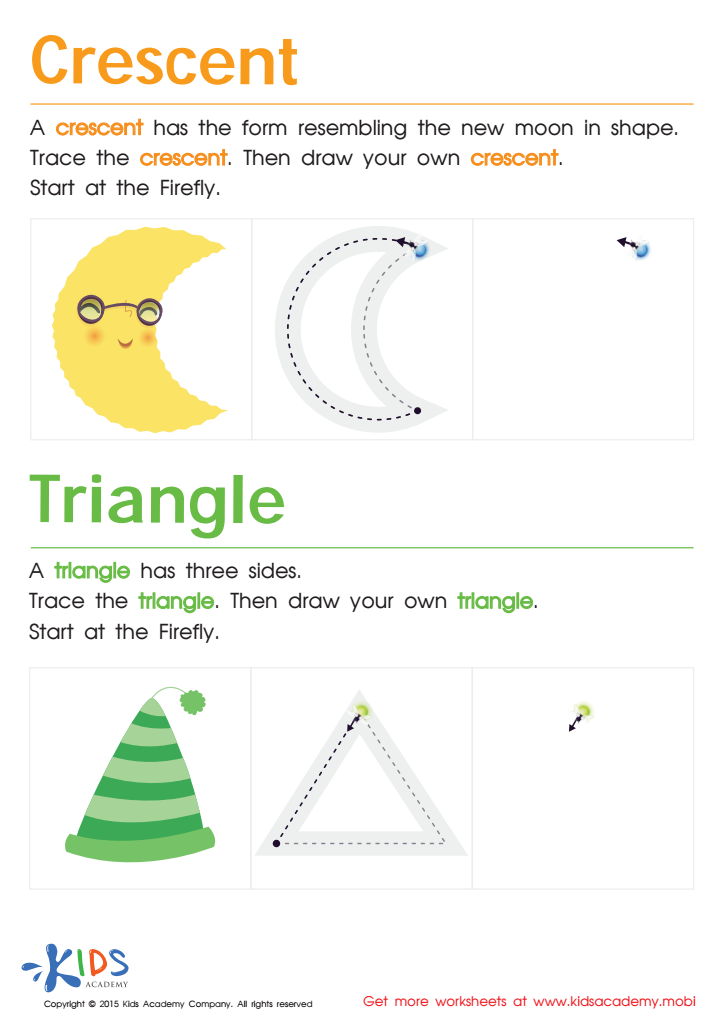

Learning to Draw Crescents And Triangles Worksheet
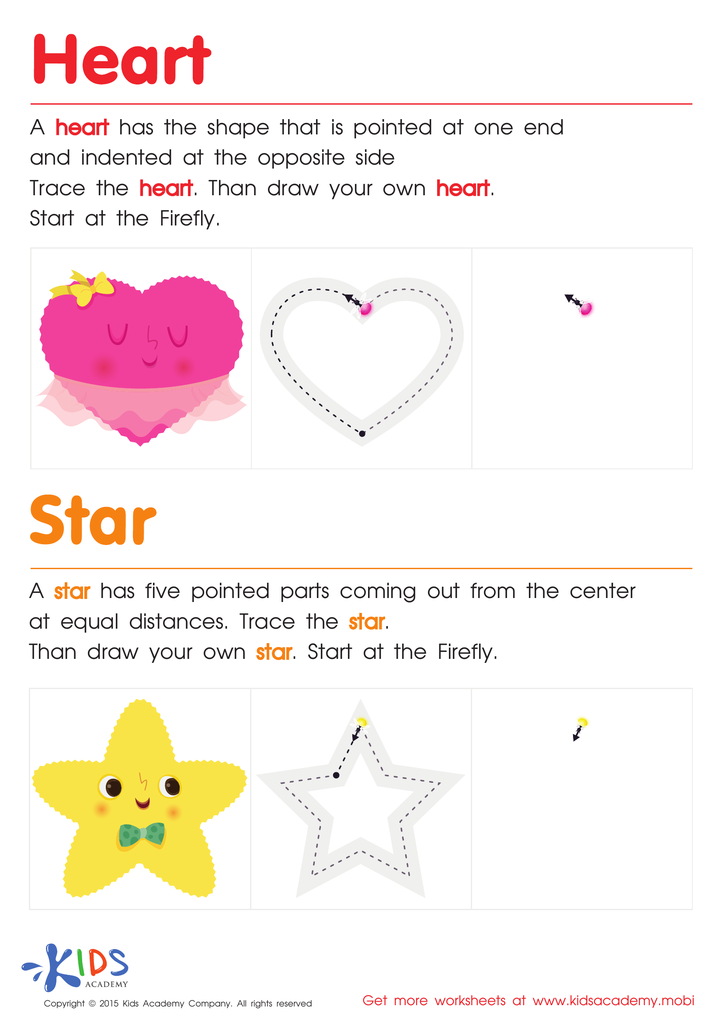

Let's Learn to Draw Hearts And Stars Printable
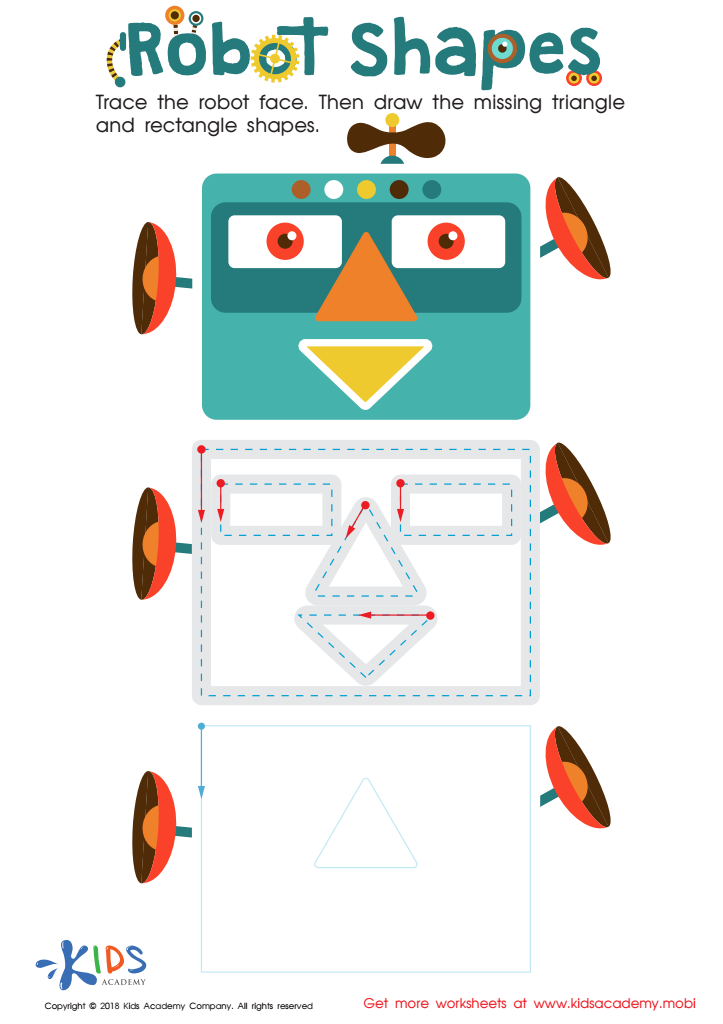

Robot Shapes Worksheet
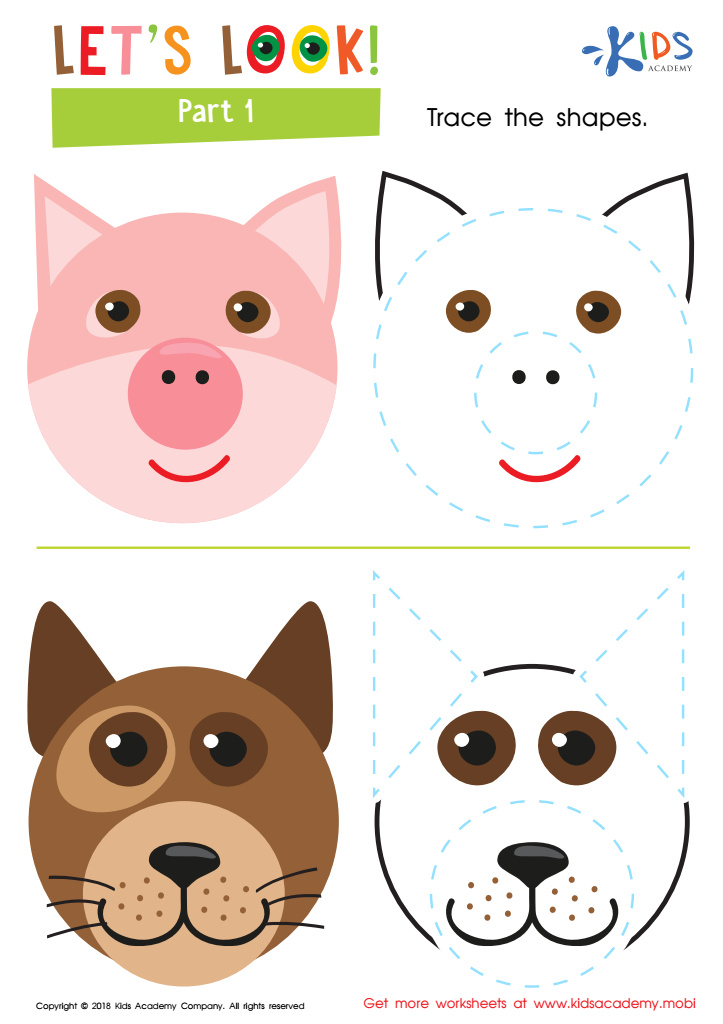

Let's Look! Part 1 Worksheet
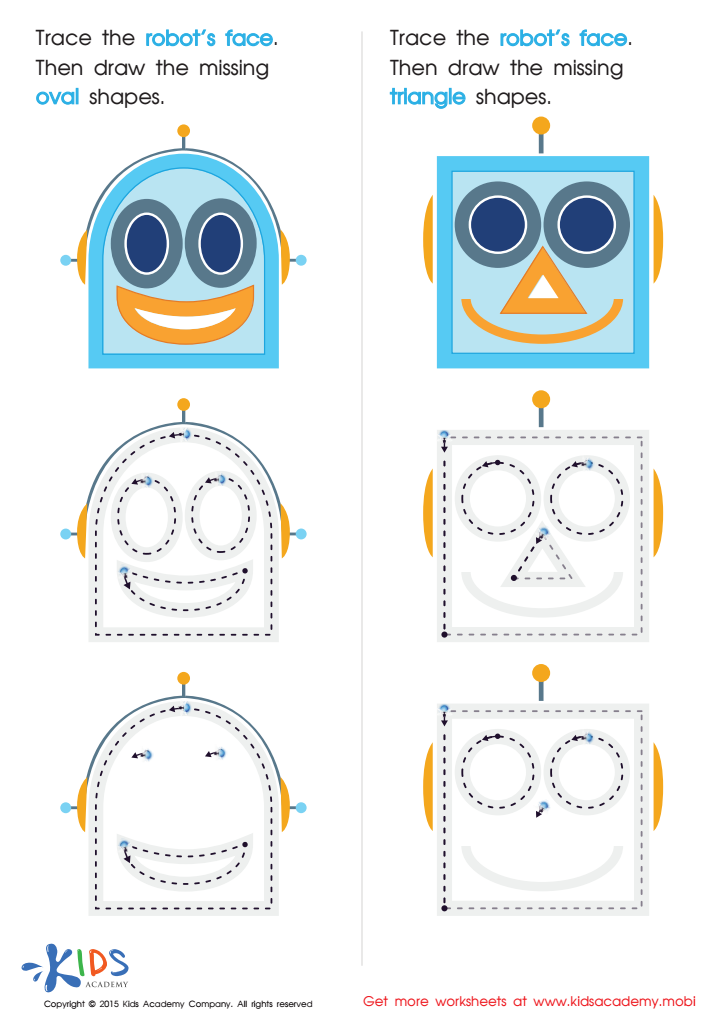

Drawing Ovals And Triangles with Fun Printable
Tracing Shapes worksheets activities for Preschool are an invaluable resource for early childhood education, offering a multitude of benefits that extend far beyond the basics of learning geometric shapes. These engaging and educational worksheets are meticulously designed to cater to young learners, making them an essential tool in preschool settings.
First and foremost, Tracing Shapes worksheets activities for Preschool support the development of fine motor skills. As children trace over the shapes, they are effectively practicing and refining their pencil control and hand-eye coordination. This foundational skill is crucial, not only for writing but also for other everyday tasks such as tying shoelaces or buttoning clothes.
Additionally, these worksheets serve as an introductory platform to the world of geometry. By engaging with various shapes through tracing activities, preschoolers begin to recognize and differentiate between circles, squares, triangles, and more. This early exposure lays the groundwork for more complex mathematical concepts that they will encounter as they progress through their educational journey.
Moreover, Tracing Shapes worksheets activities for Preschool also enhance cognitive development. Through repetition and practice, children learn to focus and improve their memory and recognition skills. These activities encourage preschoolers to follow patterns, a skill that is beneficial in numerous aspects of learning and daily life.
Furthermore, these worksheets are designed with young learners in mind, providing a fun and interactive way to learn. The sense of accomplishment that children feel upon successfully tracing and recognizing shapes fosters a positive attitude towards learning. This is crucial in these formative years, as it helps to build self-esteem and a love for education.
In conclusion, Tracing Shapes worksheets activities for Preschool are much more than simple drawing exercises. They are a comprehensive tool that aids in the holistic development of preschoolers, preparing them not just academically, but also in their fine motor, cognitive, and social-emotional skills. Incorporating these activities into the preschool curriculum is undoubtedly a wise and rewarding investment in the future of young learners.

 Assign to the classroom
Assign to the classroom





